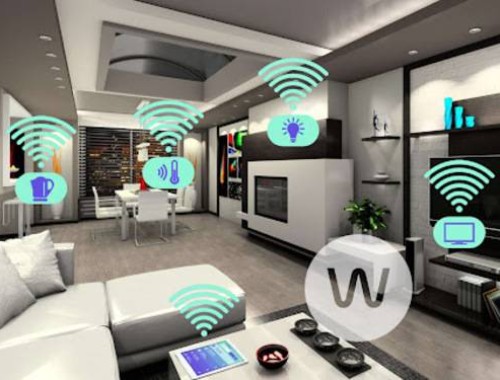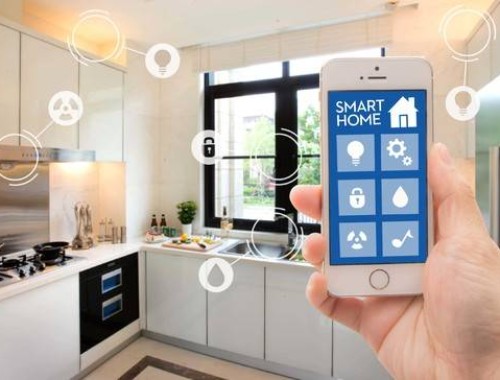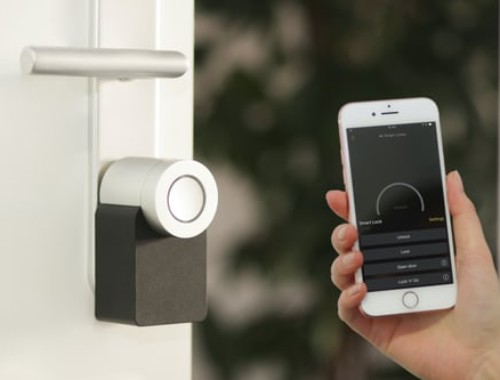Smart homes are in full swing, and "smart evolution" is accelerated in third- to sixth-tier cities
Source:Xinhuanet
The sinking market has surpassed first- and second-tier cities to become the main consumer market for smart homes.
With the popularization of 5G technology and the combination of artificial intelligence and the Internet of Things, the smart home industry is developing rapidly, with more complete product functions, and scenes in movies are gradually becoming reality. According to the monitoring data of AVC, the deployment rate of smart homes in my country in 2020 will increase by 15.1% compared with the previous year, reaching 84.2%. Smart homes have "flyed into the homes of ordinary people" and become the "new favorites" of more and more people.
Smart home comes to life
Speaking of smart home, many people think of smart door locks for the first time. As an entry-level must-have product for smart homes, smart door locks not only free people from the heavy keychain, and no longer have to worry about being locked out of the door; they also realize home anti-theft by means of cat-eye anti-theft settings and security alarms. Smart door locks have both aesthetics and practicality, so they are favored by many customers who are new to smart homes.
According to the 2020 China Smart Home Ecological Development White Paper released by the China Smart Home Industry Alliance (CSHIA), in the lives of smart home users in our country in 2020, smart door locks, smart security sensors and smart cameras will be the industry leader in smart security. It has become the smart home of choice for users, and the user demand accounted for 92%. Intelligent voice and intelligent network followed closely, accounting for 83% and 71% respectively, while the demand for intelligent robots was the lowest, accounting for only 21%.
While smart homes are gradually being accepted by people, we should also see that there are still limitations to the use of smart homes in life. Due to the limitations of the times, technology and product forms, some painful needs have not been stimulated and released, and user needs cannot be fully satisfied by the current spatial intelligence system. Smart homes should reshape the product form based on the actual needs of users and focus on safety, health, entertainment, etc., to achieve both "smart" and "home", and bring users a more user-friendly experience.
Smart home opens the sinking market
Platforms such as Tmall released the Smart Home Consumption Insights in the Sinking Market 2020 the day before, pointing out that Chinese households in lower-tier cities are accelerating "smart evolution", and the sinking market (cities, counties and rural areas below the third-tier) has surpassed the first second-tier cities have become the main consumer market for smart homes. Relying on the internet and efficient logistics systems, smart home products are no longer exclusive to residents of first - and second-tier cities.
According to the Smart Home Consumer Insights in the Sinking Market in 2020, more than 50% of Tmall Genie smart home users are in Tier 3 to Tier 6 cities, among which the growth rate of users in Tier 6 cities is the fastest, and that of sales and sales in Tier 4 cities is the highest. Soon, the sinking market is becoming a new blue ocean in the smart home industry. At the same time, according to data from the Tmall platform, small appliances such as smart switches, smart floor lamps, smart electric steamers, etc., whose prices are between 50 yuan and 300 yuan, have increased by more than 300% year-on-year in the sinking market, which is also evidence of this phenomenon.
From simple pragmatism to being practical, beautiful and improving the quality of life, it not only reflects the changes in users' consumption views, but also reflects people's attitudes when buying smart home products. According to Tmall data, in 2020, young men in the sinking market are most keen to buy smart air conditioners, while women prefer smart washing machines and smart dishwashers. Users in the sinking market generally have a slower pace of life. They pursue a convenient, labor-saving, healthy and comfortable life, and they have great consumption potential and market space.
The development and upgrading of the smart home industry
On April 8th, Huawei's new product launch conference for Huawei's whole-house smart and smart screen flagship was held as scheduled and received widespread attention. Based on the technology integration of the family's "cloud pipe end-edge core", Huawei Whole House Intelligence has overcome three major problems with "one machine, two networks", and realized a stable, efficient, and rich whole-house intelligent user experience, and promoted to the smart home and real estate industries, drived the industry to carry out a new round of upgrading and innovation.
According to the professional data of Tianyancha, since 2014, our country's smart home-related enterprises (all enterprise status) have grown rapidly, and the annual registration growth rate has remained above 20%. At present, there are nearly 160,000 companies whose names or business scopes include "smart home, smart home appliances, smart home improvement" and smart home-related companies whose status is active, surviving, moving in, or moving out. More than 80% of related companies were established within 5 years. Among them, the number of new related companies in 2019 was the largest, with nearly 40,000, with an annual growth rate of 37%. Followed by 2020, 31,000 related companies will be added.
The increase in related companies has promoted the development and upgrade of smart home products in the course of competition and development, but at the same time, there has also been a phenomenon that each brand fights on its own. Due to the lack of a unified industry standard, there is no open agreement between the equipment manufacturers, resulting in isolation between products, unable to communicate with each other, it is difficult to form a true smart home, greatly affecting the user experience. How to solve the problem of poor product compatibility is believed to be an important issue for the smart home industry in the future.
According to the "2020 China Smart Home Ecological Development White Paper", since 2016, with the landing of product maturity and the rise of smart security and smart home appliances markets, the growth rate of smart homes has begun to stabilize, maintaining at around 20% every year. China is expected to become the world's largest consumer of the smart home market, occupying 50%-60% of the global smart home market consumption share, and profit accounting for 20%-30% of the global market share.
Nowadays, the smart home market is very good and the audience is growing day by day, but at the same time there are still some problems. For example, most consumers choose to purchase smart home products, which cannot bring the overall smart experience; most smart home products are still in the control intelligence stage, binding people’s needs and equipment, without thinking ability, and unable to achieve real "intelligence"; some devices collect sensitive personal information of users, and there are hidden dangers to information security, etc.
Passing emotions and serving life are the main directions of the current smart home market development. The industry should serve users in a systematic and integrated way, evolving from smart home to whole-house intelligence; at the same time, continue to improve smart interconnection technology, smart interactive technology, etc., to improve the operating efficiency and quality of smart home products, so that products can also feel the user's emotions and needs, thereby bringing a more humanized experience.
The source has been identified in this article. All copyrights belong to the original anthor. In case of infringement, please contact us.
-

Midea released the first smart home operating system based on HarmonyOS
-

The second quarter analysis of the European smart home market is released, Amazon tops the list
-

Huisen Furniture joins hands with Xiaomi, entering the Smart Field of the Whole House
-

The demand for home security is as high as 92%, with huge growth potential

 沪公网安备31010402003309号
沪公网安备31010402003309号



